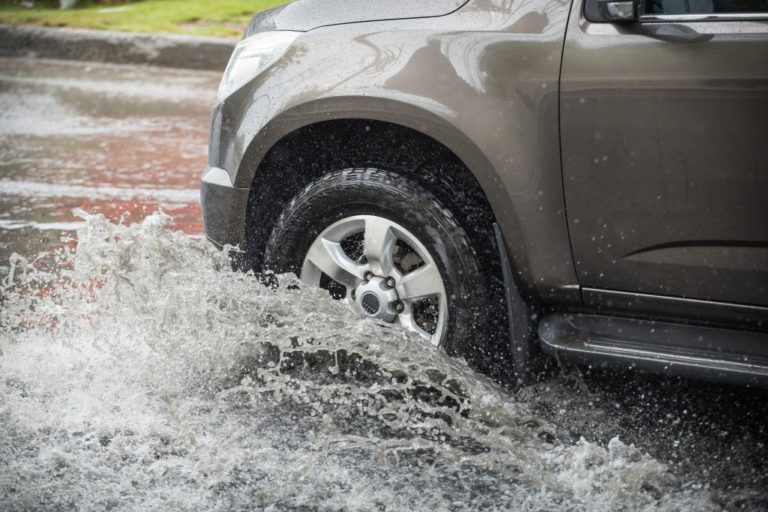A study from The Joint Center for Housing Studies of Harvard University revealed that one in three American households is occupied by renters (as of 2020). Many of these renters are fortunate to share a good (if not cordial) relationship with their landlords. On the other side of the spectrum, however, are tenants struggling with illegal landlord actions.
A good landlord is always a plus for tenants. Inexperienced landlords can be a struggle, but bad landlords call for the protection of your rights. There are laws governing the buying and selling of property, even renting, too. If your landlord has been problematic recently, depending on the behavior in question, knowing your rights and working with a tenant attorney provide you with ammunition against their illicit activities.
Tenants in the Face of Illegal Landlord Actions
Despite their rights, many renters never file a complaint, believing they are powerless against their landlords. Some tenants wait for their lease to end, so they can move out “in peace.” Other tenants have tried talking to their landlords, but the conversations have led to nowhere.
Finally, some tenants think that their landlord’s actions are “normal.” They own the property, after all. But the reality is, these questionable actions could be violations of your rights as a renter.
Instead of keeping quiet, turning a blind eye or not noticing these actions, it pays to be vigilant. Spare yourself from landlord harassment by knowing what your landlord can and cannot do.
Common Illegal Landlord Actions
If your landlord commits one or more of the following activities, do not stay silent. Here are examples of illegal landlord actions and landlord harassment and what you can do about them.

- Increasing rent fees without formal notice. Rent increases are a normal part of tenant living. Still, you shouldn’t worry about your rent charges increasing monthly. Unprecedented fluctuations in your rental fees are not just unfair; they are also difficult to pay. If your landlord plans to raise rent fees, they should give you a formal notice first. Although landlords have a right to raise rent fees, they can’t do it on a whim and the timing has to comply with state laws.
- What can you do about it? All agreements concerning the property should be in writing. Landlords must give you at least a month’s notice before they increase your fees. Once you’ve settled the basics of your payment, ask for a revised outline of the new payment: fees, date of payment and other important details. Getting the new amount in writing offers legal protection in case you need evidence on the differences in rent.
- Charging excessive fees. If you notice that your landlord is charging excessive and confusing fees, speak up. All fees should be explained to you before you settled in the apartment. Landlords should list all fees related to the rented property in your lease agreement for transparency and easy reference.
- What can you do about it? Ask about the fees and how you can address them. However, if you’ve dealt with the fees and your landlord continues to charge excessive fees, raise your concern to a housing court. If your landlord charges outrageous fees and claims they are for repairs, cleaning or other items, a lawsuit might be worth it.
- Withholding of security deposit without a valid reason. Questionable landlords put up a fight when it comes to handing over the tenant’s security deposit. Some will reason that you are not entitled to receive your money back while others will disappear. If you leave the apartment in good shape and you have no unpaid dues, your landlord should return your security deposit.
- What can you do about it? Before renting a property, read and get a clear understanding of your terms. Make sure the landlord clearly explained the terms regarding the security deposit, such as when, how and in what situation will the landlord not return your deposit. Next, make sure you leave the apartment in good condition. Maintain your unit so your landlord won’t have ammunition against you when they withhold your deposit. Also, keep receipts in case you made repairs to the property. Finally, write a letter, requesting your landlord to return your deposit. Send the written request through certified mail, complete with a return receipt request. This letter can be helpful if you decide to sue your landlord.

- Changing of the locks without notice. Landlords are not allowed to change your locks without an eviction order and/or advanced notice. If they believe a tenant should be evicted, they can’t put matters into their own hands.
- What can you do about it? As tempting it is to pick the lock, don’t. Your landlord may use this against you. Instead, call the local police department so your landlord has no choice but to give you access to your apartment. Next, get in touch with a tenant attorney to seek legal representation.
- Challenging your rights as a protected class. If you are a person with a disability in need of a service dog but your landlord does not allow pets, do not worry. Your landlord can’t evict you if you need special accommodations due to a disability or an illness. If you fall under the protected class category, know your rights.
Common issues that cause conflict between landlords and tenants of protected classes are service animals (which should be allowed despite a “no pets” policy) and family accommodations (most states allow two tenants per room).
Understanding the Gray Areas
Although some actions are blatantly illegal, other tenants fall in the “gray” area. These gray area concerns are often debatable.
Consider the following:
Can a Landlord Make Tenants Pay for Repairs?

Under the Landlord-Tenant Law, landlords must ensure that their properties meet livability standards. The unit or home to be rented out should be in good condition without any safety and health concerns. Tenants should have access to proper water and heating systems.
In case of repairs, the landlord should pay for them, as well as performing said repairs. In some cases, however, the landlord is not required to pay or do the repairs.
For example, landlords are not required to repair cosmetic issues that do not affect a property’s safety. They are not required by law to repair small holes in the wall, stained rugs or dripping faucets. If the tenant is the cause of the damage, the tenant pays for the repairs.
Can a Landlord Do Random Inspections?
Technically, your landlord owns the property, but this does not permit them to access your unit whenever they want — even if their reason warrants a random inspection. On the other hand, renters have the right to privacy, but they are not allowed to prohibit the landlord from checking in on the property.
Landlords have the right to enter your property but they can’t do so without informing you beforehand. All states require landlords to inform renters in advance through a verbal or written notice. The notice should include the date and times when the landlord plans to inspect. They must also give the tenants the option to reschedule the inspection. Some state laws require landlords to hold inspections during business hours (8 AM to 6 PM). They can also hold inspections a few times a year, but not too frequent that a renter feels inconvenienced or harassed.
If a landlord conducts an unannounced inspection or fails to give you advance 24-hour notice, you have the right to refuse them entry.
Can a Landlord Tell You How to Keep Your House Clean?

The cleanliness of a property is often the center of the dispute between tenants and landlords. Landlords have rules they want their renters to abide by. On the other hand, tenants believe the cleanliness of their unit or home is within their rights.
So does your landlord have the right to tell you off for not cleaning your home?
Yes. They can tell you how to clean your home if your mess can cause harm to you and your neighbors.
Lease agreements often include a clear-cut list of the landlord’s dos and don’ts when renting their property. The list mentions specific rules, such as how to manage biodegradable and non-biodegradable items. Landlords include this on the lease agreement to ensure their tenants’ safety, as well as the cleanliness of the property.
Can a Landlord Take Photos of Your Apartment Without Your Permission?
Landlords have the right to take photos of their properties during an inspection. If they do plan to take pictures, they should ask the tenant’s permission first. Valid reasons include the following:
- To document damage
- For insurance and/or record-keeping purposes
- To use the photos for advertisement in case you are leaving soon
When it comes to taking photos, however, the landlord is not allowed to take pictures of the tenant’s belongings. If they cannot avoid it, the landlord should inform the tenant that they might take photos of their belongings, as well.
In terms of taking exterior photos, a landlord has the right to take pictures without your permission since it is outside. Still, they should make sure your belongings are not included in the photo.
As a tenant, it helps to know your rights in case your landlord commits any illegal action against you. When a landlord insists on these illegal activities, stay put. Seek legal help immediately.











